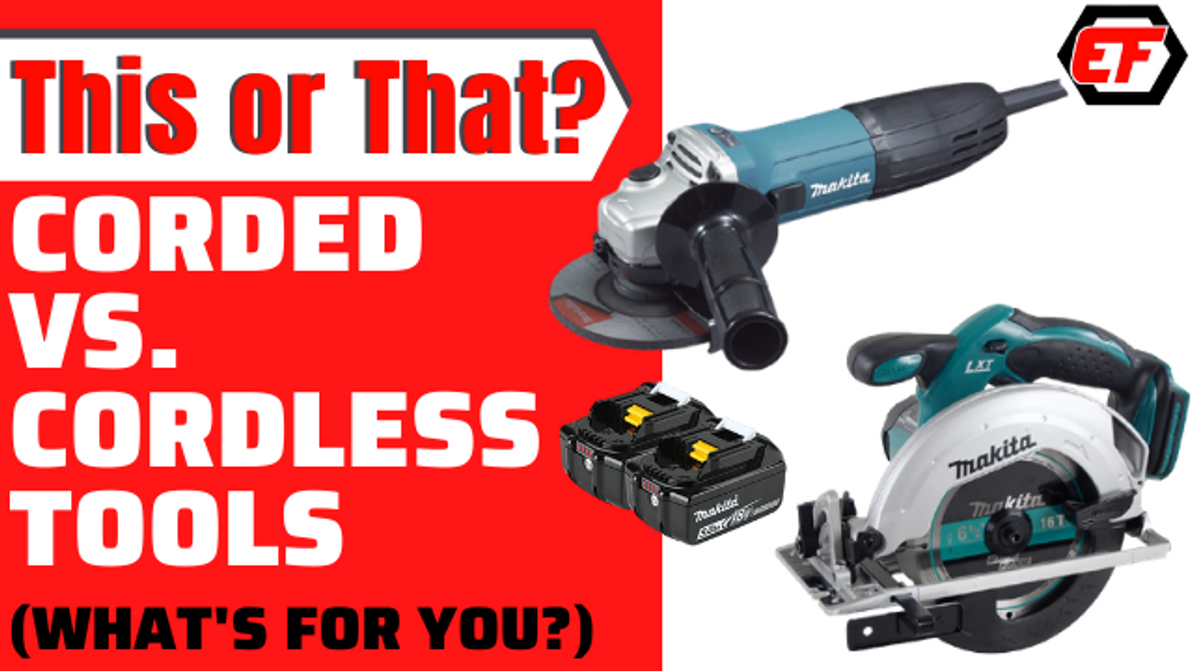When it comes to choosing between corded and cordless power tools, many people tend to lean toward the latter, perceiving them as more modern, compact, and convenient. However, while cordless tools certainly offer a degree of freedom and portability that corded tools cannot match, they aren't always the superior option depending on your needs. Both types of tools have their own set of advantages and disadvantages, and understanding these differences is key to making an informed decision. In this article, we'll delve into the pros and cons of corded and cordless power tools. By the end, you'll be equipped with the knowledge needed to decide which type of tool best fits your specific requirements, rather than simply following personal biases or trends. One of the most significant benefits of corded tools is their constant power supply. Unlike cordless tools, which rely on batteries that eventually run out of charge, corded tools remain operational as long as they're plugged in. This makes them ideal for tasks that require sustained power, such as heavy-duty construction projects. Additionally, corded tools typically deliver more torque and power compared to their cordless counterparts, ensuring consistent performance even during prolonged use. However, corded tools come with notable drawbacks. Their primary limitation is mobility; because they must be connected to an electrical outlet, they're restricted by the length of your power cord. This can be inconvenient when working in areas far from an available outlet. Furthermore, managing long power cords can be cumbersome and pose a tripping hazard, especially in tight workspaces. Lastly, corded tools can sometimes feel bulkier and less sleek compared to their cordless alternatives, though this isn't always the case. On the flip side, cordless tools have revolutionized the way we approach DIY projects and professional work. Their biggest advantage lies in their portability. Without the constraint of a power cord, you can take these tools anywhere—whether it's a job site lacking access to electricity or a remote location where setting up a generator isn't feasible. Modern lithium-ion batteries have made strides in terms of capacity and longevity, allowing users to enjoy extended runtime without frequent recharging. Despite their popularity, cordless tools do have limitations. One common complaint is the need to frequently recharge batteries, particularly if you forget to charge them before use. While advancements in battery technology have mitigated this issue somewhat, it remains a consideration. Another factor to keep in mind is the trade-off between weight and power. Many high-capacity batteries add extra weight to the tool, which could be uncomfortable during prolonged use. Additionally, cordless tools may not match the raw power output of corded tools, especially for demanding applications. Ultimately, whether corded or cordless tools are right for you depends on your particular situation. For instance, if you frequently work outdoors or in areas without reliable electricity, cordless tools would likely serve you better. Conversely, if you prioritize uninterrupted performance and don't mind being tethered to a power source, corded tools might be the way to go. sump slurry pump,Vertical Submersible Pump,,warman slurry pump,mining slurry pumps Sichuan Zhongying Industrial Pump Co., Ltd , https://www.zygyb.com
Corded vs. Cordless Tools - What's Best for You?
Corded Tools
Cordless Tools
​Corded vs. Cordless Tools - What's For You?
November 5, 2020